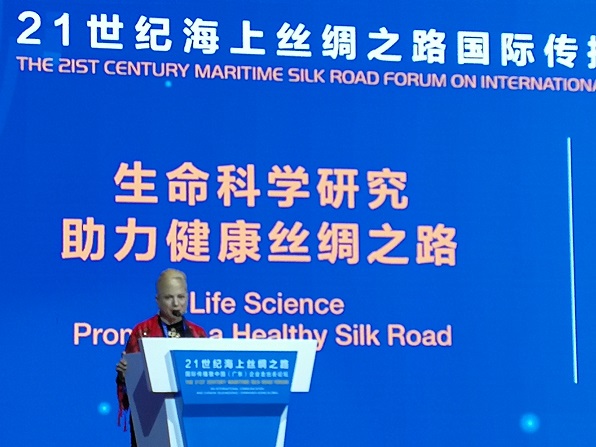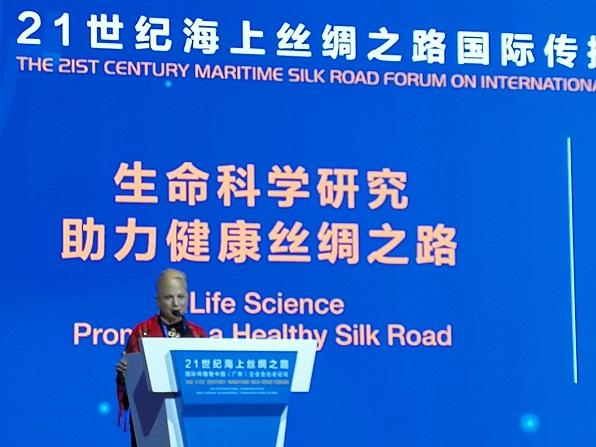
GUANGZHOU, Nov. 30 (Xinhua) -- With the Belt and Road construction going forward, countries along the routes have increased pragmatic cooperation in biological medicine and traditional Chinese medicine, experts agreed at a forum focusing on promoting a “Healthy Silk Road” held on Wednesday in Zhuhai, South China's Guangdong Province.
As globalization rapidly advances, today, governments and business leaders are confronting a new challenge that is impacting economic growth and commercial success – that is worldwide healthcare. As healthcare problems are becoming borderless, proactive unified action by countries is mandated to combat a global health crises, such as infectious diseases, lifestyle risks, and health inequity, which all span beyond one's sovereign border, said Cynthia Dibartolo, Chairperson of the Greater New York Chamber of Commerce, on a parallel forum of “The 21st Century Maritime Silk Road" Forum on International Communication and Chinese (Guangdong) Companies Going Global.
Dibartolo added that the Belt and Road Initiative is a visionary plan that contains the fundamentals to achieve universal health coverage: infrastructure, access to medicines, human resources, and a platform to share experience and promote best practices.
It is worth noting that in recent years, with the in-depth advancement of China’s exchanges and cooperation with many foreign countries, traditional Chinese medicine (TCM) has played an increasingly important role.
While releasing a development planning of TCM under the Belt and Road, China has also set up 16 TCM centers overseas and signed TCM cooperation agreements with 15 countries, according to Li Chuyuan, chairman of the Guangzhou Pharmaceutical Holdings Limited (GPHL).
TCM has been introduced to more than 183 countries and regions. Some countries have recognized legal status of TCM, especially for acupuncture. Cooperation and exchanges on TCM and TCM trade and services have been on the rise, and TCM education and cultural communication have been booming, said Wang Shengliang, President and Deputy Party Secretary of Guangzhou University of Chinese Medicine.
The attendees also offered suggestions for cooperation in medicine and healthcare under the Belt and Road Initiative.
Wang said that China should strengthen efforts to promote international communication of TCM and support sharing TCM services with countries along the Belt and Road.
Promoting cluster construction of the life science industry shall be an effective way to promote construction of the “Healthy Silk Road”, said Lorraine Hariton, Senior Vice President of Global Partnerships, New York Academy of Sciences.
Countries should strengthen exchanges and training in the medical field. For example, China has 46 surgical robots, plus advanced laparoscopic surgery machines. Through the "Healthy Silk Road", surgeons around the globe could learn advanced medical training and surgical skills training specially in the field of robotic and laparoscopic surgery, said Dibartolo. (Contributed by Hu Pingchao, Li Zhilan, hupingchao@xinhua.org; edited by Yang Qi)




 A single purchase
A single purchase









